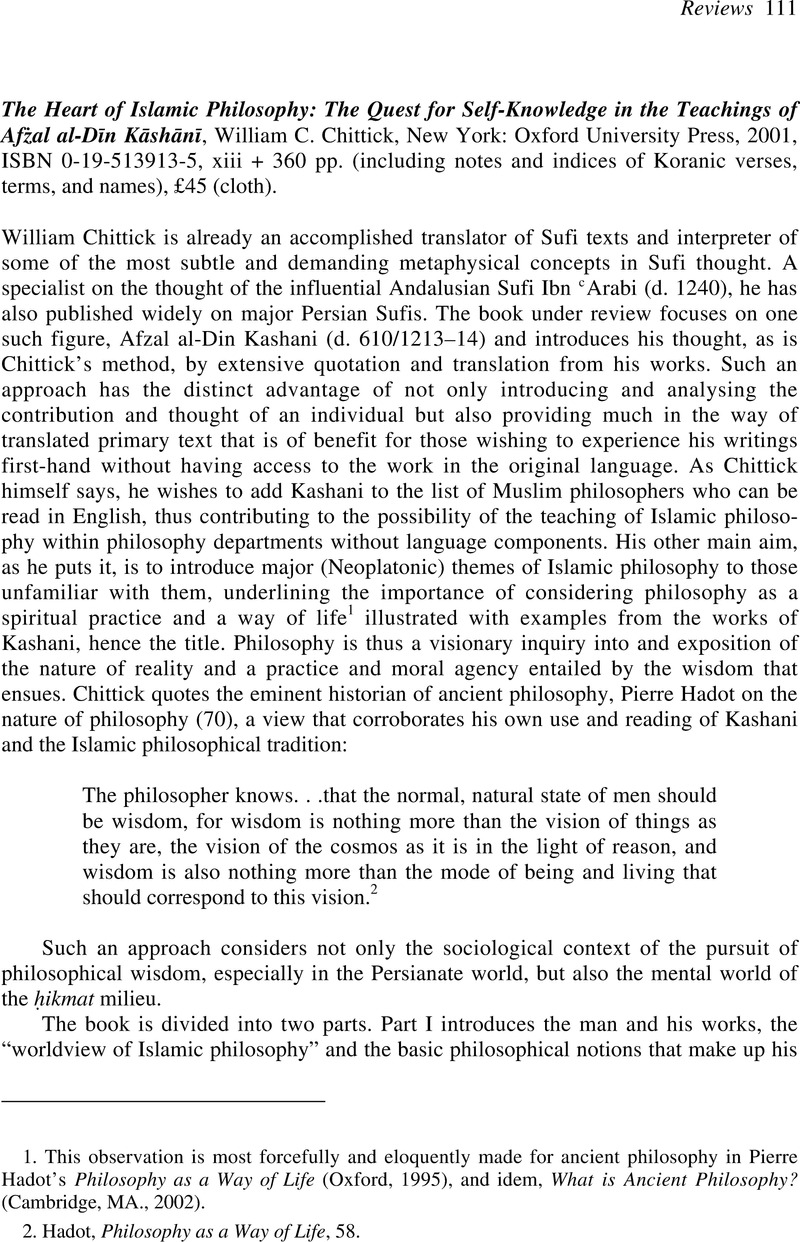No CrossRef data available.
Published online by Cambridge University Press: 01 January 2022

1. This observation is most forcefully and eloquently made for ancient philosophy in Hadot's, Pierre Philosophy as a Way of Life (Oxford, 1995)Google Scholar, and idem What is Ancient Philosophy? (Cambridge, MA., 2002).
2. Hadot, Philosophy as a Way of Life, 58Google Scholar.
3. Chittick borrows this notion from the work of Merlan, Philip Monopsychism, Mysticism, Metaconsciousness: Problems of the Soul in the Neoaristotelian and Neoplatonic Tradition (The Hague, 1963), 20-21CrossRefGoogle Scholar.
4. Chittick, has already written two works that focus on this idea: Faith and Practice of Islam, (Albany, NY, 1994)Google Scholar and, with his wife Murata, Sachiko The Vision of Islam (London, 1997)Google Scholar.